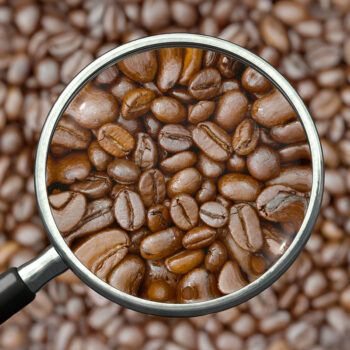Caffeine is a ubiquitous substance that has become an integral part of our daily lives. It’s in the coffee that we drink in the morning to help us wake up, and it’s present in energy drinks that give us the boost we need for long nights at work or during exams. But what really happens to our bodies when we consume caffeine? How does it affect our brain, heart rate, blood pressure, and metabolism?
From its origins as a natural stimulant found in leaves and seeds to modern-day culture around its use and misuse—the journey of caffeine is fascinating yet complicated. So, get ready for a deep dive into understanding your daily fix with this comprehensive guide on caffeine culture!
Overview of the History of Caffeine Consumption
Caffeine consumption has a rich and varied history, spanning thousands of years. The substance was first discovered in the leaves and seeds of certain plants by ancient peoples who noticed its stimulating effects on the body. It wasn’t until much later that caffeine became an important part of global trade, with coffee shops popping up across Europe in the 17th century.
Over time, caffeine began to be used not just for its energizing properties but also for medicinal purposes. In fact, many early forms of medicine contained high levels of caffeine as it was believed to cure various ailments like headaches and depression.
Today, caffeine is present in many everyday items such as tea, chocolate, soda drinks and energy drinks. Its long-standing history and ubiquitous presence speak volumes about how we continue to rely on it as a cultural staple around the world. As research into its effects continues there remains great public interest around understanding more about this impressive stimulant that finds meaning beyond just waking us up from our slumber every morning!
The Science Behind How Caffeine Affects the Body
Caffeine affects the body by blocking adenosine receptors in the brain. Adenosine is a chemical that accumulates throughout the day and signals to our brains when it’s time to sleep. By blocking these receptors, caffeine keeps us awake and alert. However, this also means that overconsumption of caffeine can disrupt our natural sleep patterns and lead to insomnia.
In addition to its effects on the brain, caffeine also increases heart rate and blood pressure by stimulating the release of adrenaline in our bodies. This can be beneficial in small doses as it provides an energy boost during stressful situations or physical activity. However, excessive consumption of caffeine can have negative effects on cardiovascular health.
Caffeine also plays a role in metabolism by increasing thermogenesis (the production of heat) and fat oxidation (the breakdown of fat for energy). This is why many weight loss supplements contain caffeine as an ingredient. However, it’s important to note that while caffeine may temporarily increase metabolic rate, it’s not a long-term solution for weight loss.
Diverse Ways to Consume Caffeine
There are numerous ways to consume caffeine, each with its own advantages and disadvantages. One of the most popular methods is through coffee, which contains varying levels of caffeine depending on the type and preparation method. Coffee has been shown to improve mental focus and alertness, but it can also cause jitters or disrupt sleep if consumed in excess.
Another common way to consume caffeine is through tea, which contains lower levels of the substance than coffee. Tea drinkers often report feeling calmer and more relaxed compared to those who consume coffee. In addition, tea drinking has been linked with lower risk of heart disease due to its antioxidants content.
Energy drinks are yet another way people choose to get their daily dose of caffeine. These highly caffeinated beverages can provide an instant boost in energy but may lead to increased heart rate or blood pressure when consumed frequently.
Tips on Managing Daily Intake of Caffeine
For those of us who rely on caffeine to get through our day, it’s important to remember that moderation is key. While a cup or two of coffee can provide a healthy dose of energy and focus, consuming too much caffeine can lead to jitters, anxiety, and even heart palpitations. So how do we manage our daily intake?
One tip is to be aware of the amount of caffeine in your favorite drinks. A standard 8 oz cup of coffee contains around 95 mg of caffeine, while an energy drink may have up to 300 mg per serving. Keeping track of how much you’re consuming each day can help you stay within safe limits.
Another helpful strategy is to experiment with different sources and forms of caffeine. Some people find that tea provides a milder yet sustained boost compared to coffee, while others prefer supplements like guarana or green tea extract for energy without the crash.
Ultimately, managing your daily caffeine intake comes down to being mindful and attuned to your body’s needs. By paying attention and making intentional choices about what you consume each day, you can enjoy all the benefits that this natural stimulant has to offer without going overboard.
Conclusion
The science behind caffeine consumption is both fascinating and complex. Our bodies can metabolize caffeine at different rates depending on our genetics, age, weight, and overall health status. While caffeine can have positive effects on cognitive function and physical performance, it’s important to remember that excessive intake can lead to negative consequences such as anxiety, sleep disturbance, and heart palpitations.
It’s clear that the impact of caffeine goes far beyond a simple pick-me-up; it’s an integral part of human culture with deep roots in history and modern-day society alike. By considering the scientific evidence alongside cultural norms surrounding this substance – from social rituals like coffee breaks at work to religious traditions involving tea ceremonies – we can gain a deeper appreciation for how caffeine shapes our lives in numerous ways.










